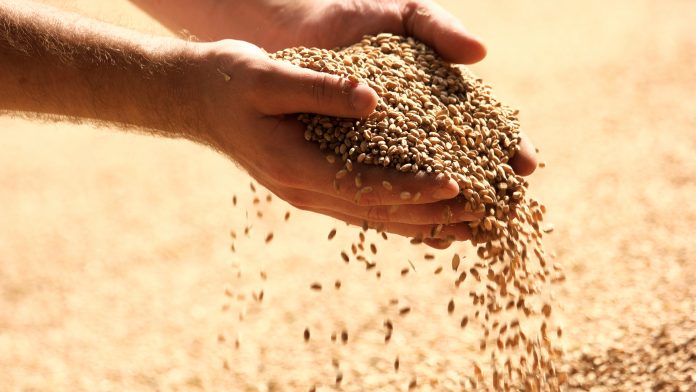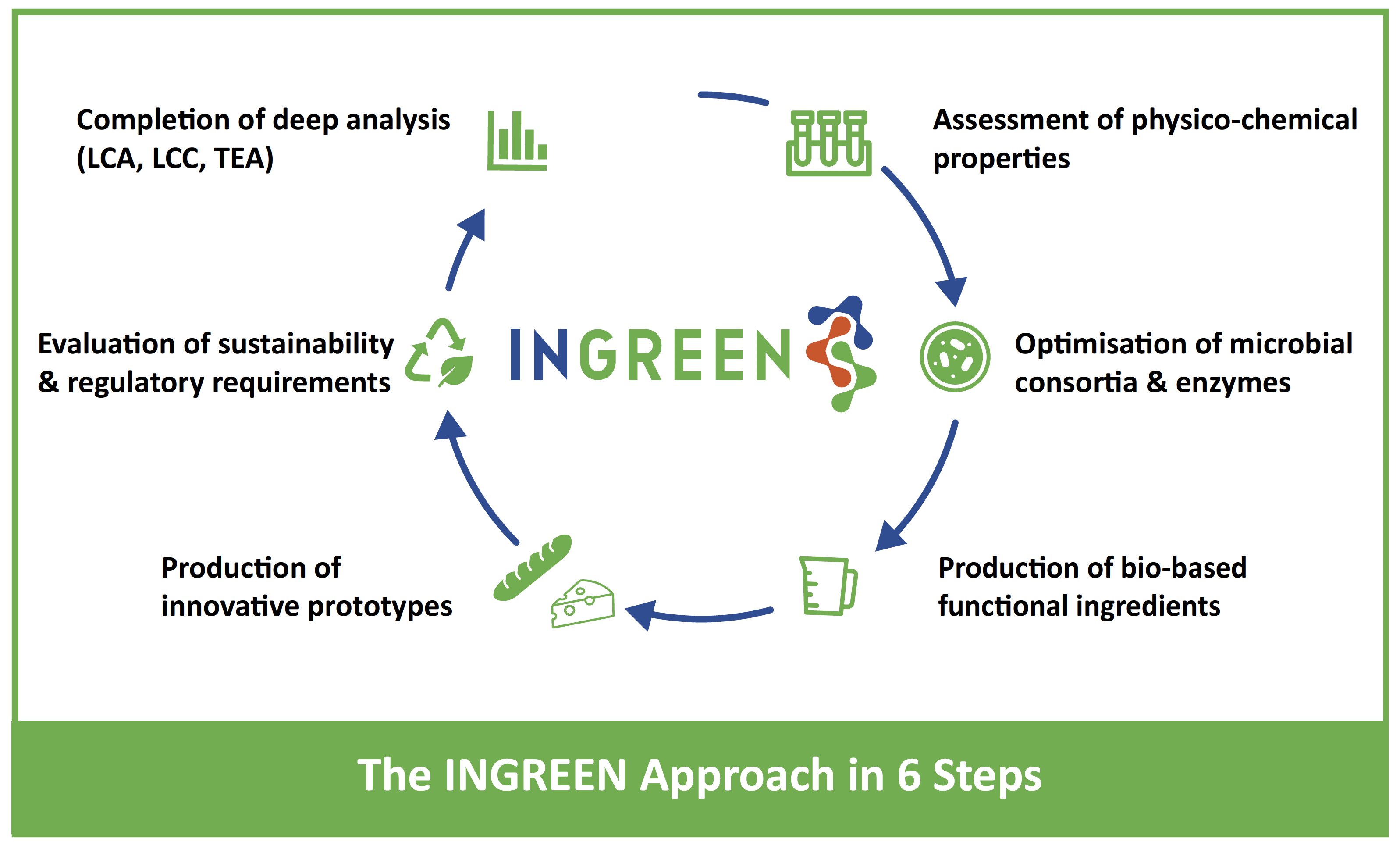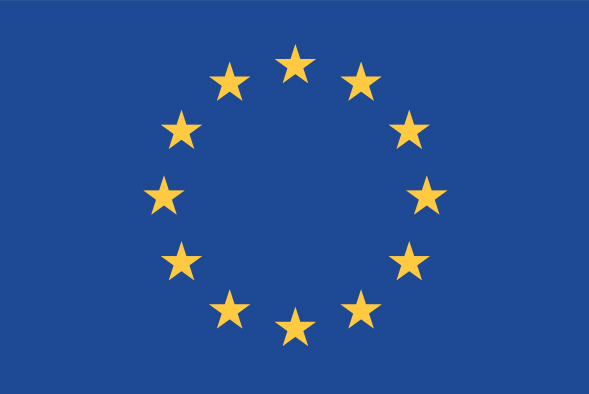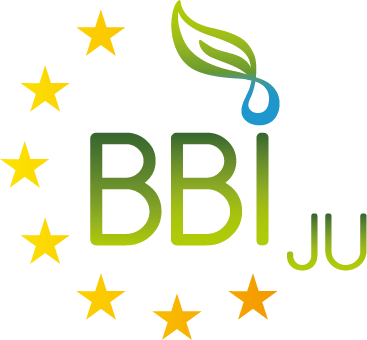Prof. Rosalba Lanciotti, University of Bologna, talks about finding new ways to valorise industrial side streams for use in Food, Feed, Cosmetics and Packaging
The need to address food and paper & pulp waste is urgent. Currently, 88 million tonnes of food waste are generated annually in the EU, which not only costs €143 billion but also wastes a potentially valuable source of bioactive ingredients. The paper and pulp industry is the 6th largest polluting industry globally, producing 11 million tonnes of waste and 42 million tonnes of CO2 emissions per year in Europe alone. At the same time, the market for functional food ingredients is estimated to reach €88 billion by 2023, with a CAGR of 6.6%. Such ingredients serve to strengthen the human immune system, help manage weight and improve overall health, among other benefits. They can also be used in animal feeds to maintain digestive health. Next to this, the bio-based chemicals market is growing at a CAGR of 16.53%, expected to reach €22 billion by 2026.
The INGREEN project, funded by the Bio-based Industries Joint Undertaking, addresses the challenge of food and paper & pulp waste by capitalising on the market opportunities for functional ingredients and bio-based chemicals. In real operational environments, INGREEN will demonstrate sustainable, efficient, and safe biotechnologies and eco-friendly approaches to produce health-promoting functional food ingredients and raw materials. Innovative bio-based prototypes will be produced for the food, feed, pharmaceutical, cosmetic and packaging sectors.
The INGREEN animation video provides a short overview of all aspects of the project.
Approach for impact
At the beginning of the collaboration, the INGREEN partners identified three side streams which have high potential for producing functional ingredients and compounds: whey from the dairy industry, wheat and rye bran milling by-products from the agro-food industry, and papermill wastewater. The ingredients and market products are shown in the figure below.
The scientific approach followed by INGREEN assumes that only tailor-made biotechnological approaches and processes, validated at industrial levels, may overcome the main barriers limiting the production of bio-based ingredients, compounds, and products. As stated by Professor Rosalba Lanciotti of the University of Bologna, the project Scientific Coordinator, “the investigated side streams are sources of unexploited organic fractions. INGREEN is aimed to exploit them into innovative and functional bio-based ingredients and products.” These ingredients are already being tested to produce bio-based prototypes, such as safe microbial biomasses for the food and feed sectors, pre-fermented ingredients for bakery and nutraceutical sectors, and galacto-oligosaccharides (GOS) and lactobionic acid (LBA) for the cosmetic and pharma sectors, as well as protocols for extraction and purification of PHA usable for innovative biodegradable packaging film formulations. Ensuring regulatory compliance and developing robust commercialisation plans are complementary activities that will further overcome barriers to market uptake of the final products.
Through this approach, INGREEN will obtain at least 20% more value from the project side-streams, which are usually considered waste. New cross-sectorial interconnections within the bio-based economy will set the basis for new bio-based value chains. These impacts will be achieved by demonstrating consumer products based on bio-based chemicals and materials that meet market requirements through six key steps:
- Assessment of physico-chemical properties of the chosen side streams and by-products.
- Selection of the biotechnological processes and optimization at pilot scale.
- Production of well-characterised bio-based functional ingredients.
- Production of sustainable and innovative, commercial product prototypes in different industrial environments.
- Evaluation of the regulatory requirements and standardisation of the biotechnological processes and prototypes.
- Completion of deep Life Cycle Analysis, Life Cycle Costing, and Techno-Economic Assessments to understand the feasibility and sustainability of the processes and accelerate market uptake.
Keys to project success
The INGREEN project is well on track, despite interruptions from COVID-19 restrictions. According to Prof. Lanciotti, “this is due to the strength of the project consortium based on complementary and multidisciplinary expertise from academia and industry, able to synergistically interact to maximise impact.” Both specific and broad knowledge on the considered side streams and the now available processing plants are covered by large industries as well as by SMEs. The close collaboration between technology developers and industry with high aspirations of commercialising the project outcomes will result in enhanced market and business opportunities and a strong interconnection among industrial sectors.
The INGREEN consortium consists of four research and innovation partners, four large enterprises, eight small and medium-sized enterprises and a membership organization. Our 17 partners are located in ten countries throughout Europe. Skills are brought together concerning the use of biotechnological approaches, operating sustainably in industrial environments, industrial symbiosis and process integration, nutrition and health, environmental and economic assessments, and engineering solutions, as well as the deep functional characterization of the INGREEN outcomes.
Contact the Project Coordinator, Mr. Narinder Bains of iNeuvo, for more information or to discuss collaboration opportunities with the project partners. You can learn about the latest project developments by signing up for the project newsletter.
Start date: 1 June 2019
Duration: 3.5 years
Type: BBI Innovation Action
This project has received funding from the Bio Based Industries Joint Undertaking (JU) under grant agreement No 838120. The JU receives support from the European Union’s Horizon 2020 research and innovation programme and the Bio Based Industries Consortium.
Please note: This is a commercial profile
















